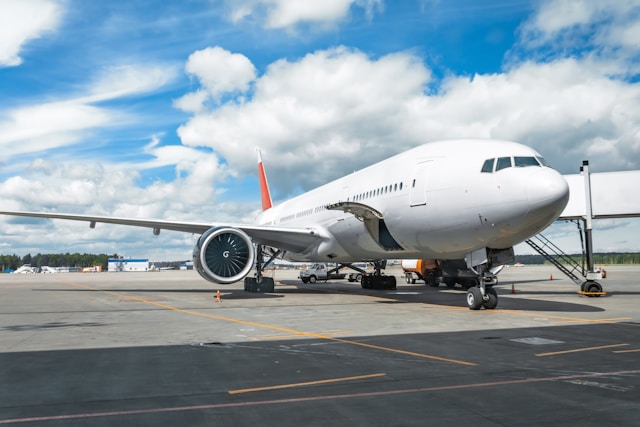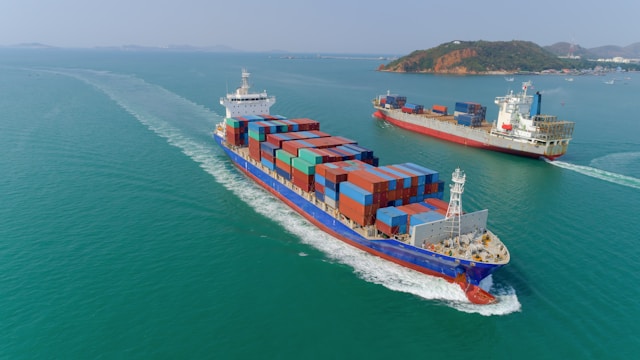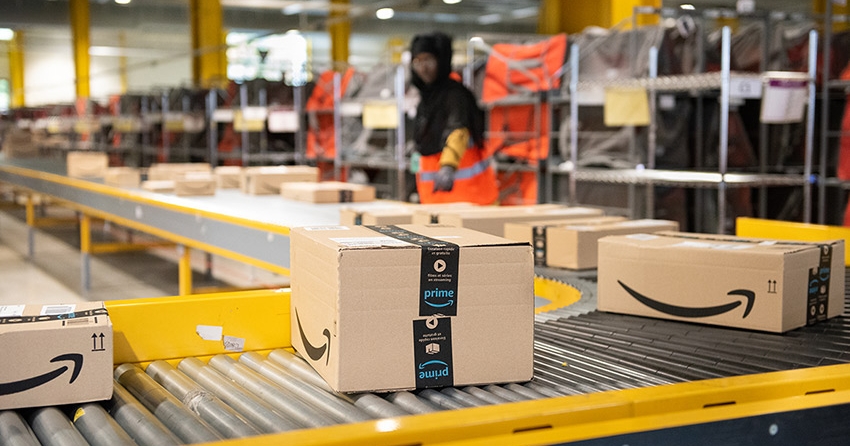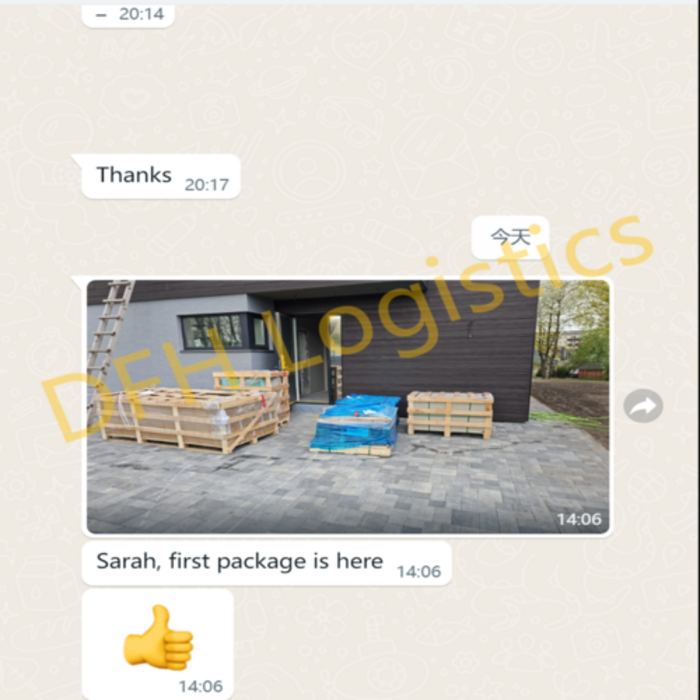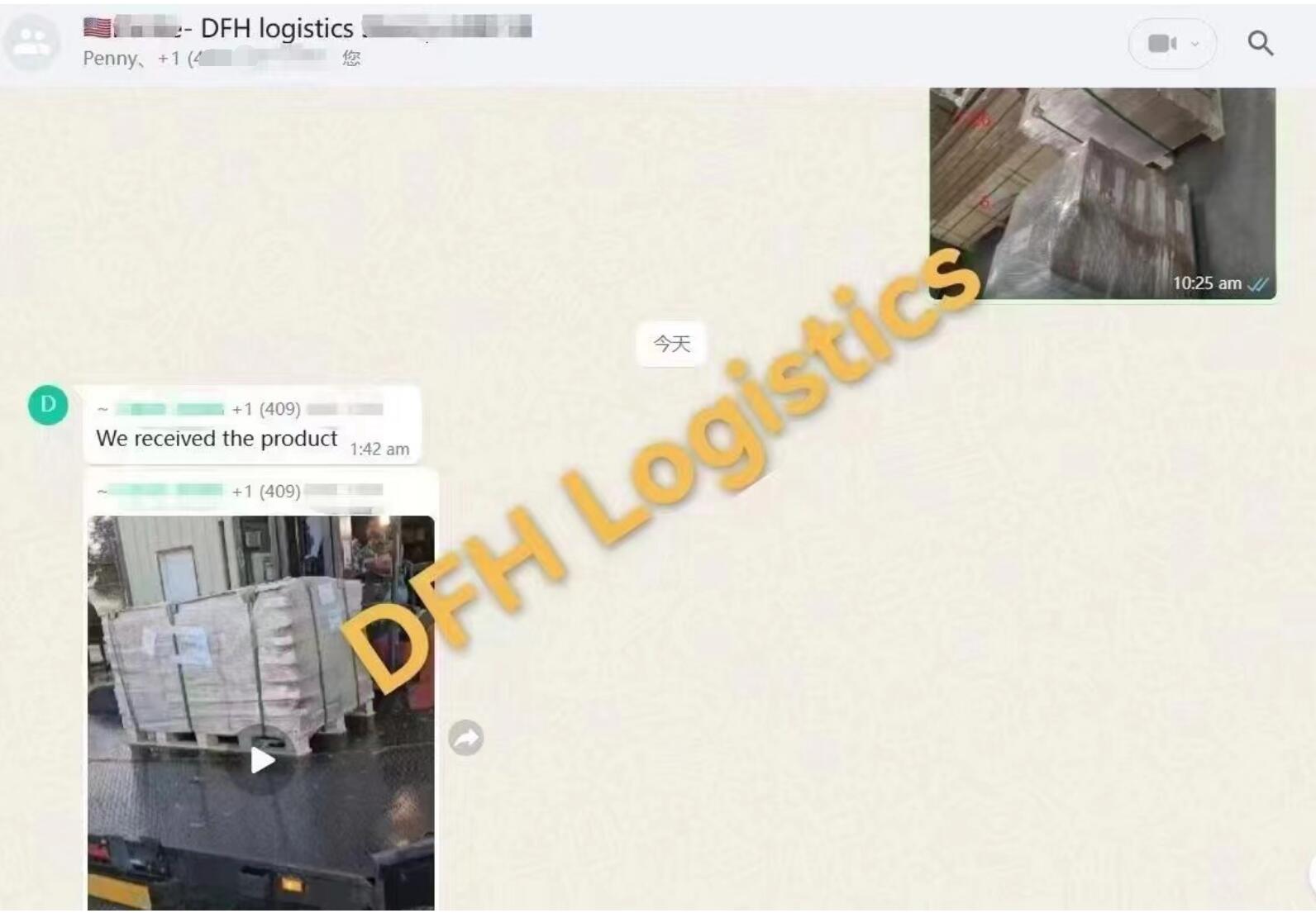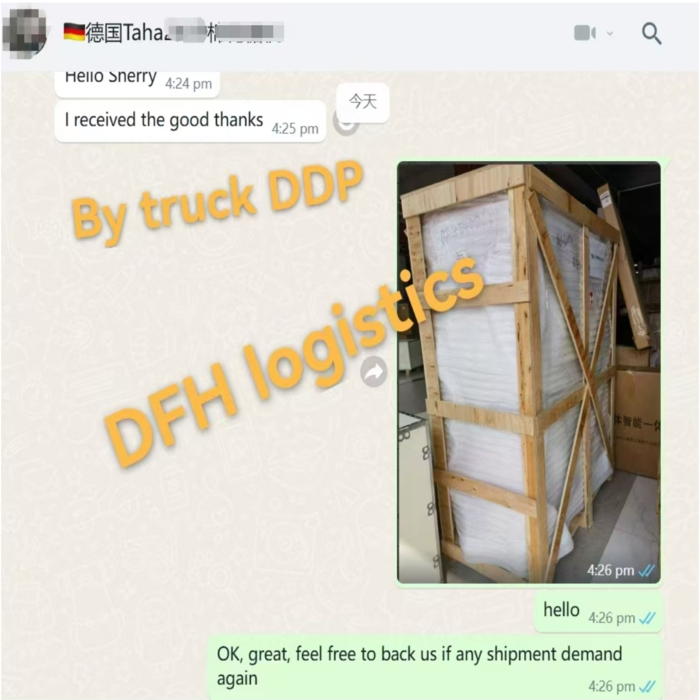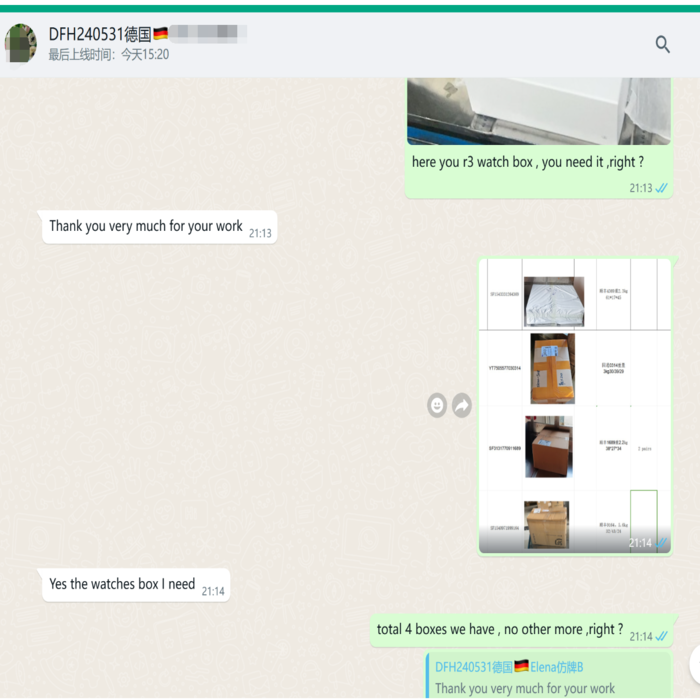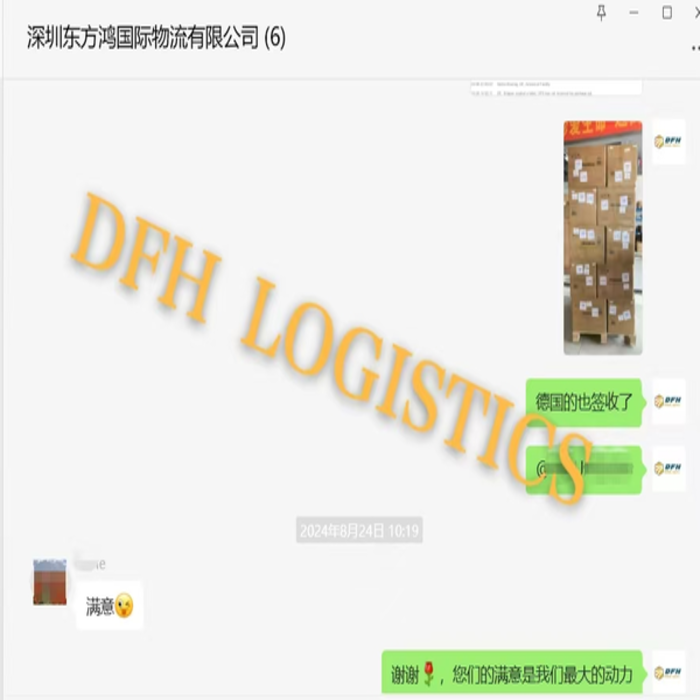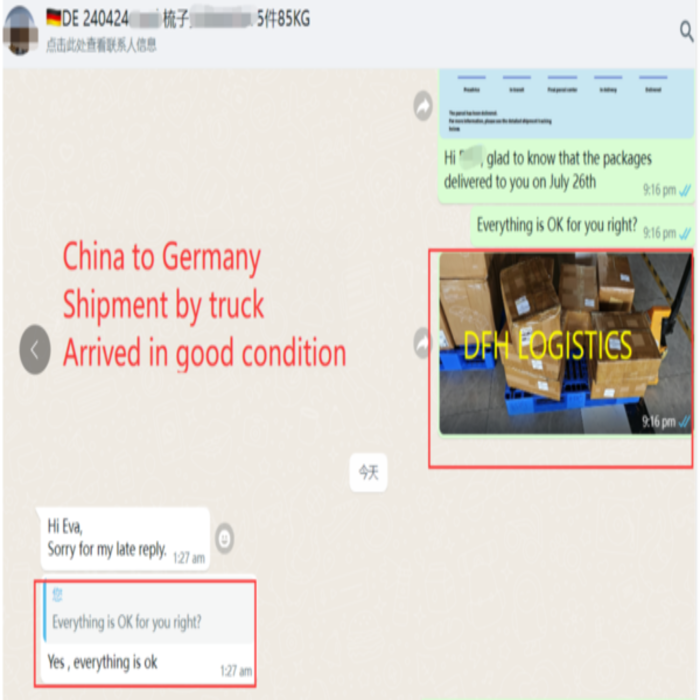Shipping goods from China to Germany involves many logistics options, including air freight, sea freight, and express courier services. Each method has its own advantages in terms of cost, delivery time, and convenience. In this guide, I’ll explain everything you need to know about shipping from China to Germany, including timelines, pricing, customs processes, and tips for optimizing your shipping strategy. Whether you’re a business owner or an individual, this article will help you navigate the complexities of international logistics with confidence.
What are the 3 Shipping Options from China to Germany?
When shipping from China to Germany, there are three main options: shipping directly through your Chinese supplier, using a local German freight forwarder, or hiring your own Chinese freight forwarder. Each option has its advantages and drawbacks. Here’s a closer look at these methods to help you decide.
Shipping directly by Chinese Supplier
Some Chinese suppliers offer shipping services as part of their sales package. This can be convenient for buyers as it simplifies the process, especially for small shipments. However, suppliers often lack expertise in international logistics, leading to higher costs and slower delivery. Additionally, you may have limited control over the shipping process, and communication gaps could arise when dealing with customs or delays.
Shipping directly by Germany Local Freight Forwarder
Using a local freight forwarder in Germany might seem appealing, as they are familiar with the country’s import regulations. They handle customs clearance efficiently and ensure smooth delivery. However, local freight forwarders often rely on intermediaries in China, which can result in higher costs and less transparency. For small to medium businesses, this option can be expensive without providing significant value.
Shipping by Your Own China Freight Forwarder
Choosing your own Chinese freight forwarder offers the best combination of cost-efficiency, reliability, and control. They manage the process end-to-end, including pickup from your supplier, export documentation, customs clearance, and delivery. This approach eliminates intermediaries, reduces communication issues, and offers competitive pricing tailored to your needs.
With expertise in diverse shipping methods such as DDP and multimodal transport, a China freight forwarder like DFH Logistics can ensure a seamless experience for shipping to Germany.
What are the Shipping Methods from China to Germany?
Shipping from China to Germany offers a variety of methods, each suited to different needs based on budget, urgency, and shipment volume. Common options include air freight, sea freight, express shipping, railway freight, truck transportation, and DDP shipping. Let’s explore each method to understand its advantages and suitability.
Air Freight from China to Germany: Pros and Cons
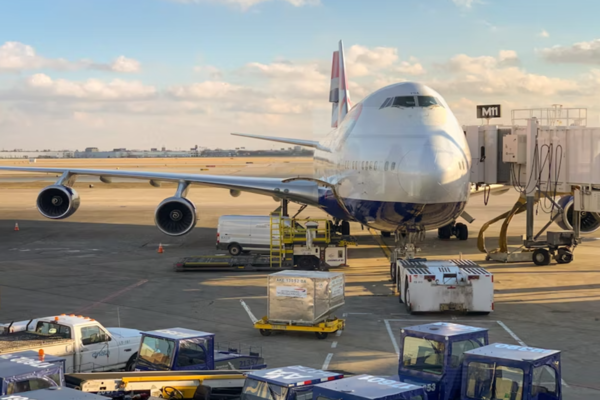
Air freight is one of the fastest ways to ship goods from China to Germany, making it a popular choice for urgent or high-value shipments. However, the cost is significantly higher compared to other methods. The decision to choose air freight often depends on the balance between time sensitivity and budget. Below are the primary types of air freight options.
Air Freight Port to Port in Germany
Port-to-port air freight is ideal for businesses with expertise in handling customs clearance and last-mile delivery. It offers flexibility in choosing local logistics partners in Germany but requires more coordination from the buyer’s side. While the shipping time is fast, additional costs for customs and final delivery may apply.
Air Freight Door to Door in Germany
Door-to-door air freight offers complete convenience, with the freight forwarder managing every aspect of the shipment, including pickup, customs clearance, and delivery to the final destination. Though slightly more expensive than port-to-port, it reduces the complexity and ensures a smooth process, particularly for less experienced shippers.
Sea Freight from China to Germany: FCL vs. LCL
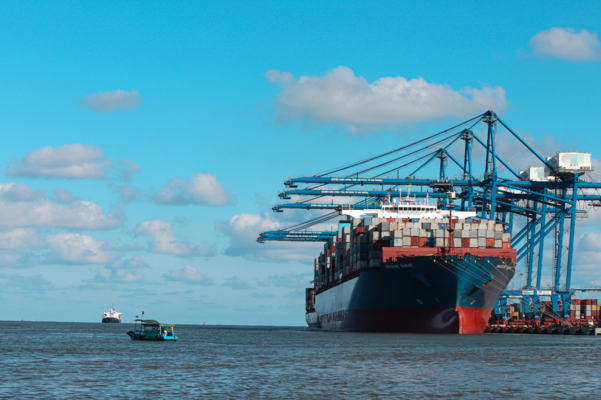
Sea freight is the most cost-effective way to ship large volumes of goods from China to Germany. Depending on the shipment size, you can choose between Full Container Load (FCL) or Less than Container Load (LCL) shipping. Here’s an overview of these two methods.
FCL Shipping from China to Germany
FCL (Full Container Load) is ideal for large shipments that can fill an entire container. It offers lower cost per unit, better protection against damage, and quicker transit compared to LCL. However, it may not be cost-effective for smaller shipments due to fixed container costs.
LCL Shipping from China to Germany
LCL (Less than Container Load) allows businesses to share container space, making it suitable for smaller shipments. While this method is more economical for low volumes, the shared space can lead to delays and higher handling risks during consolidation and deconsolidation.
Express Shipping from China to Germany: Is It Worth It?
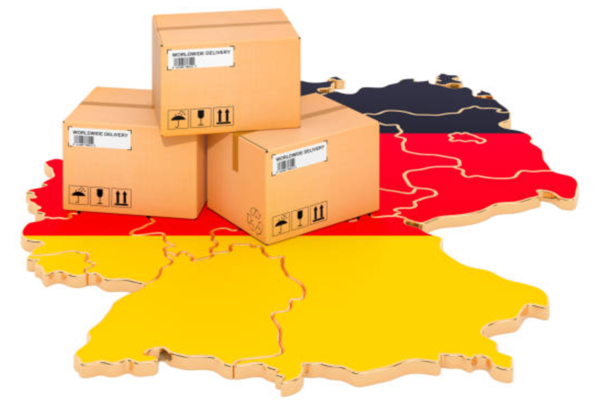
Express shipping is the fastest and most reliable option for time-critical shipments, especially for lightweight packages. However, it is significantly more expensive than other methods. Major express carriers like DHL, FedEx, and UPS dominate this service. Here’s a closer look at each option.
DHL Express from China to Germany
DHL is known for its extensive global network and reliable delivery times. It provides efficient door-to-door service, often completing shipments within 3–5 days. However, this premium service comes at a higher cost.
FedEx Express from China to Germany
FedEx is another reliable option, offering time-definite services and competitive transit times. FedEx’s strong customer support and tracking tools are highlights, though pricing may vary based on package dimensions.
UPS Express Shipping from China to Germany
UPS provides efficient express shipping with excellent delivery guarantees. It is well-suited for e-commerce sellers and businesses requiring fast, secure deliveries. However, UPS rates are among the highest in the industry.
Railway Freight from China to Germany: Pros and Cons
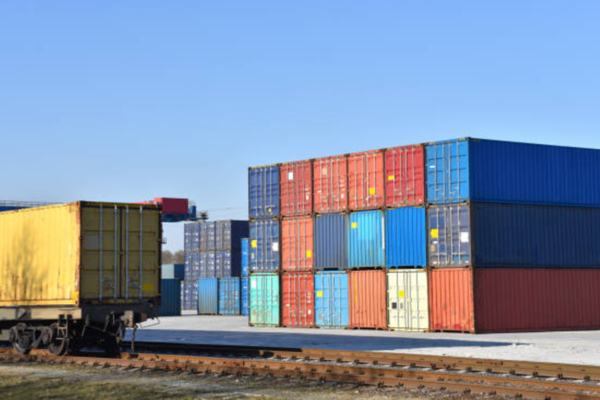
Railway freight is a middle-ground solution between air and sea freight in terms of cost and transit time. It is particularly advantageous for European routes, offering stability and reduced carbon emissions. However, longer transit times compared to air freight may limit its use for urgent shipments.
Truck Transportation from China to Germany: Pros and Cons
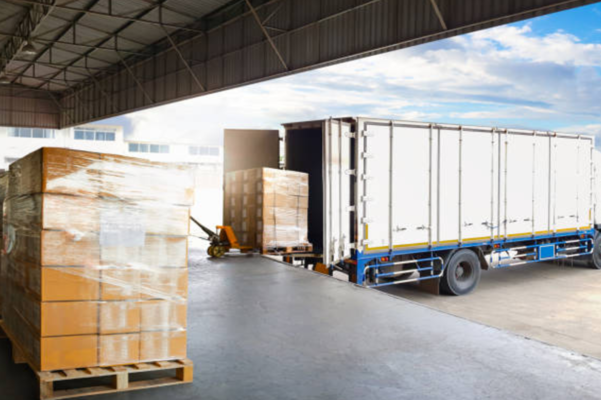
Truck transportation is commonly used for shipping from China to European destinations, providing flexibility and cost efficiency for medium to large shipments. While it offers the advantage of door-to-door service, longer transit times and limitations on cargo types can be drawbacks.
DDP Shipping from China to Germany

DDP (Delivered Duty Paid) shipping simplifies international shipping by including customs clearance and duty payments in the service. It’s a hassle-free option for businesses that prefer to avoid dealing with complex customs procedures. Below are the key types of DDP shipping.
Air Freight DDP Shipping from China to Germany
This method combines the speed of air freight with the convenience of DDP services. Goods are delivered to the final destination, including all customs clearance and tax payments, ensuring a seamless experience for urgent shipments.
Sea Freight DDP Shipping from China to Germany
Sea freight DDP is ideal for cost-sensitive shipments. It offers a lower shipping cost per unit and handles all customs formalities. Though slower than air freight, it’s an excellent option for larger, non-urgent shipments.
From China to Germany,ship by sea freight, and then after finsihed customs clearance and duties paid,use local truck or express company to arrange the final mial delivery.
Railway Freight DDP Shipping from China to Germany
This option utilizes rail freight from China to Germany, with final-mile delivery handled by local couriers or trucks. It’s an eco-friendly and cost-effective solution for medium urgency shipments.
Truck Transportation DDP Shipping from China to Germany
This method uses dedicated trucking services to transport goods from China to Germany. After customs clearance, the final-mile delivery is completed by local couriers or trucking companies. It’s a reliable and flexible option for door-to-door delivery across Europe.
Shipping time almost same as Air freight but Shipping price is much lower than air freight from China to Germany.
What Ports in Germany Can You Ship to from China?
When shipping from China to Germany, choosing the right destination port is essential for cost-effectiveness and efficiency. Germany has well-developed infrastructure, including major airports and seaports, which handle a significant portion of international cargo.
Major Airports in Germany
Germany’s major airports are equipped to handle international air freight with efficiency and speed. Below is a list of key airports for shipments from China:
| Airport Name | City | IATA Code | Features |
|---|---|---|---|
| Frankfurt Airport | Frankfurt | FRA | Largest air cargo hub in Germany. |
| Munich Airport | Munich | MUC | Efficient handling for international cargo. |
| Düsseldorf Airport | Düsseldorf | DUS | Regional hub with strong logistics support. |
| Hamburg Airport | Hamburg | HAM | Ideal for Northern Germany shipments. |
| Leipzig/Halle Airport | Leipzig/Halle | LEJ | Specializes in express cargo logistics. |
Major Seaports in Germany
Germany’s seaports are central to European logistics, offering advanced facilities for both FCL and LCL shipments. Here are the primary options for sea freight from China:
| Seaport Name | City | Key Features |
|---|---|---|
| Port of Hamburg | Hamburg | Germany’s largest seaport, ideal for container shipping. |
| Port of Bremerhaven | Bremerhaven | Renowned for automotive and container handling. |
| Port of Wilhelmshaven | Wilhelmshaven | Germany’s only deep-water port, suitable for large vessels. |
| Port of Lübeck | Lübeck | Specializes in Baltic trade and smaller shipments. |
| Port of Rostock | Rostock | Efficient for general and bulk cargo. |
By choosing the most suitable port based on your cargo type and destination, you can optimize both cost and delivery times. If you’re unsure which port to select, feel free to reach out for guidance!
Which Documents Do You Need to Prepare When Shipping from China to Germany?
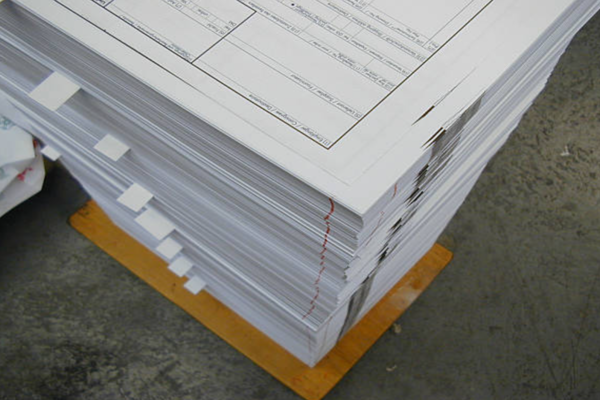
When shipping goods from China to Germany, preparing the correct documentation is critical to avoid delays, additional costs, or even penalties during customs clearance. Accurate and complete documents ensure your shipment complies with both Chinese export regulations and German import requirements.
Essential Documentation for Shipping from China to Germany
Here is a list of the essential documents you’ll need to prepare:
Commercial Invoice
- A detailed invoice listing the goods, their value, and buyer and seller information. It is used for customs declaration.
Packing List
- This document provides detailed information about the cargo, including weight, dimensions, and packaging details.
Bill of Lading (BOL) or Airway Bill (AWB)
- The BOL is issued for sea freight, while the AWB is used for air freight. Both act as contracts of carriage between the shipper and carrier.
Certificate of Origin (COO)
- This certifies the origin of the goods and may be required to qualify for tariff reductions or exemptions under trade agreements.
Customs Declaration Forms
- These forms, completed in both China and Germany, declare the nature and value of goods to the respective customs authorities.
Import/Export Licenses (if applicable)
- Certain goods may require specific licenses for legal shipping and importation.
Insurance Certificate
- Proof of cargo insurance to protect against potential losses or damages during transit.
Additional Certificates
- Depending on the product type, additional documents such as phytosanitary certificates, product safety certificates, or CE compliance may be needed.
How to Prepare These Documents
If you are unsure how to prepare the required documents, don’t worry. Here are two practical solutions:
- Ask Your Chinese Supplier for Assistance: Many suppliers have experience with export documentation and can provide the required paperwork for your shipment.
- Work with a China Freight Forwarder: Freight forwarders like DFH Logistics specialize in managing international shipping and can prepare, verify, and submit all necessary documentation on your behalf. If you feel the shipping documents is very compalicate,don’t worry at all, use DFH Logistics to ship for you from A to Z,You just need do one thing pay shipping charges.Then waiting to receive packages.
With the right guidance, the documentation process can be seamless, allowing you to focus on growing your business while we handle the logistics!
What Products Can Be Imported from China to Germany?
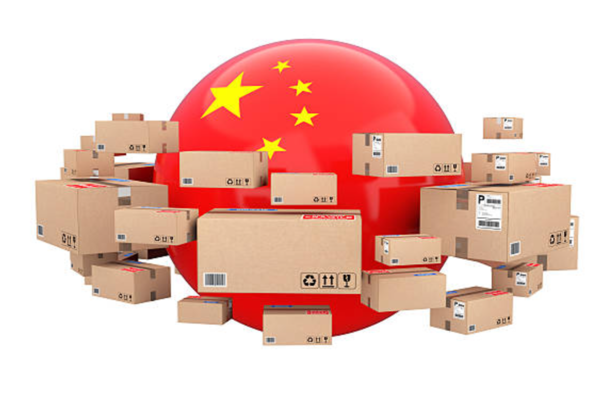
China is a key trading partner for Germany, and many types of products are regularly imported between the two countries. Understanding which products are commonly shipped and which are restricted is essential for ensuring smooth and compliant trade operations.
Commonly Imported Products from China to Germany
The following are some of the most frequently imported items from China to Germany:
| Category | Examples |
|---|---|
| Electronics | Smartphones, tablets, laptops, and components. |
| Textiles & Apparel | Clothing, fabrics, and footwear. |
| Machinery | Industrial equipment and tools. |
| Home Appliances | Kitchen appliances, cleaning devices. |
| Toys & Games | Educational toys, puzzles, and games. |
| Furniture | Office furniture, home décor items. |
| Automobile Parts | Tires, batteries, and other vehicle accessories. |
| Health & Beauty | Cosmetics, skincare products, and grooming tools. |
| Lighting | LED lights, bulbs, and decorative lighting. |
| E-commerce Goods | Dropshipping items, gadgets, and accessories. |
Prohibited and Restricted Items for Shipping to Germany
Certain products are prohibited or restricted from being imported into Germany to comply with local laws and international agreements. These include:
| Prohibited Items | Reason for Restriction |
|---|---|
| Counterfeit goods | Violates intellectual property laws. |
| Hazardous chemicals | Potential threat to health and safety. |
| Explosives and firearms | Restricted under German safety laws. |
| Endangered animal products | CITES regulations on wildlife protection. |
| Certain agricultural products | Risks related to pests or diseases. |
| Restricted Items | Conditions for Import |
|---|---|
| Pharmaceuticals and medical devices | Require specific licenses and approvals. |
| Alcohol and tobacco | Subject to high duties and strict regulation. |
| Batteries and electronic waste | Must meet environmental compliance rules. |
When planning your shipment, it’s critical to verify the legal requirements for your product category. If you’re unsure, consult with your China supplier or a professional freight forwarder to ensure compliance with German import regulations.
How Long Does It Take to Ship from China to Germany?
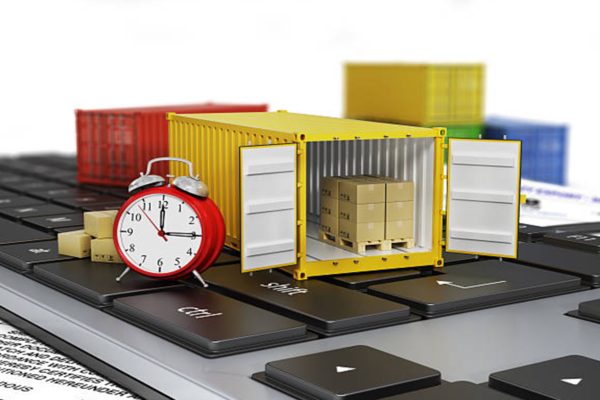
Shipping times from China to Germany depend on the transportation method you choose. Whether you prioritize speed, cost, or a balance of both, knowing the estimated delivery times for each method is crucial for planning your logistics.
Estimated Shipping Times from China to Germany
| Shipping Method | Estimated Time | Features |
|---|---|---|
| Air Freight (Port to Port) | 1–3 days | Fastest transit but requires additional arrangements for last-mile delivery. |
| Air Freight (DDP to Door) | 7–12 days | Includes final delivery to the consignee’s location. |
| Sea Freight (FCL) | 25–40 days | Ideal for large shipments. |
| Sea Freight (LCL to door) | 35–45 days | Economical for smaller shipments. |
| Express Shipping (DHL/FedEx/UPS) | 3–7 days | Fast but expensive. |
| Railway Freight | 25–35 days | Good balance of cost and time. |
| Truck Freight | 20–25 days | Flexible for door-to-door shipments. |
Factors That Affect Shipping Times from China to Germany
Transportation Method
The choice of air, sea, express, rail, or truck shipping has the most significant impact on transit times. Air freight is faster than sea or rail, but the latter may be more cost-effective for larger shipments.Port or Airport Processing
Busy ports and airports can cause delays during peak seasons. Choosing less congested entry points or working with experienced freight forwarders can minimize wait times.Customs Clearance
Efficient documentation and compliance with customs regulations in both China and Germany are critical. Delays often occur when incorrect or incomplete paperwork is submitted.Weather Conditions
Severe weather, such as storms or heavy snowfall, can delay shipments, especially for sea and air freight.Peak Shipping Seasons
High demand during holidays like Chinese New Year or Black Friday can lead to congestion and delays. Plan shipments well in advance during these times.
By understanding these factors, you can better anticipate potential delays and choose the best shipping method to meet your timeline requirements.
What Is the Best Shipping Method from China to Germany?
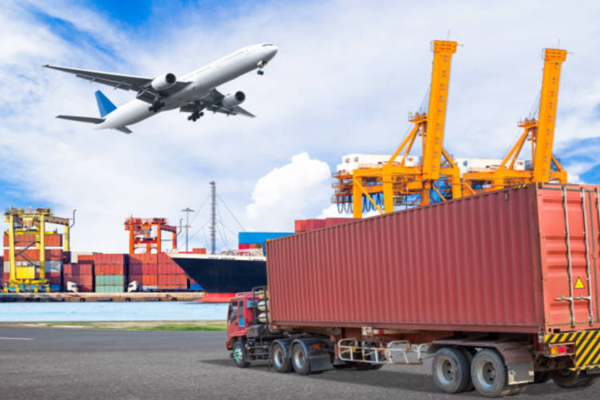
The best shipping method from China to Germany depends on your specific needs, such as delivery speed, budget, and shipment size. Below is a quick comparison of popular methods to help you decide:
- Air Freight: Best for urgent and high-value shipments, offering fast delivery within 2–7 days.
- Sea Freight: Ideal for large-volume shipments with flexible delivery timelines, taking 30–50 days.
- Express Shipping: Suitable for small, time-sensitive shipments, with delivery in 3–5 days.
- Railway Freight: A middle ground between air and sea freight, delivering within 25–35 days.
- Truck Freight: Great for door-to-door deliveries across Europe, typically taking 20–25 days.
Recommendation: For urgent shipments, air freight or express shipping is the best choice. For larger shipments with relaxed timelines, sea freight or railway freight provides excellent cost-effectiveness.
What Is the Cheapest Shipping Method from China to Germany?
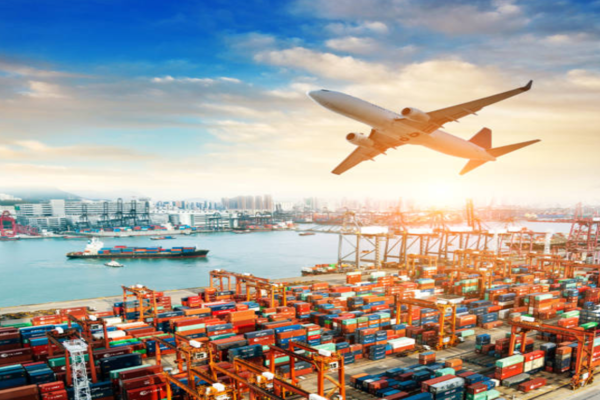
The cheapest shipping method from China to Germany is typically sea freight, especially for large or heavy shipments. Here’s a quick breakdown of economical options:
Sea Freight (LCL)
- Less than Container Load allows you to share container space, reducing costs for smaller shipments.
- Delivery time: 35–50 days.
Sea Freight (FCL)
- Full Container Load offers better per-unit costs for larger shipments, though it requires paying for the entire container.
- Delivery time: 30–40 days.
Railway Freight
- Cost-effective for medium-sized shipments, with faster delivery than sea freight.
- Delivery time: 25–35 days.
Additional Tip: If you prioritize budget over speed, work with a reliable freight forwarder like DFH Logistics to secure competitive rates and avoid hidden fees. Consolidating goods from multiple suppliers can further reduce costs.
How to Do the Customs Clearance from China to Germany?

Customs clearance is a crucial step in the shipping process, ensuring that goods meet all legal requirements before entering Germany. Here’s a simplified guide to help you navigate the process:
- Prepare Documentation: Essential documents include the commercial invoice, packing list, bill of lading or airway bill, and any necessary certificates (e.g., certificate of origin, CE compliance).
- Submit a Customs Declaration: Work with a customs broker or freight forwarder to declare your goods to German customs authorities.
- Pay Duties and Taxes: Calculate and pay applicable duties and taxes based on the Harmonized System (HS) code of your products.
- Complete Inspections (if applicable): Some shipments may require physical inspections or additional certifications.
Tip: Partnering with an experienced freight forwarder can simplify this process and prevent delays or fines.
Who Pays for Customs When Importing from China to Germany?

Who pays for customs duties and taxes depends on the agreed Incoterms between the buyer and seller:
- EXW (Ex Works): The buyer handles all shipping costs, including customs duties.
- FOB (Free on Board): The buyer pays for customs duties after the goods are shipped from the port of origin.
- CIF (Cost, Insurance, Freight): Customs duties are usually paid by the buyer upon arrival.
- DDP (Delivered Duty Paid): The seller covers all duties, taxes, and customs clearance costs.
For hassle-free shipping, DDP is highly recommended, as it includes all customs-related costs in the total shipping fee.
How Much Duties and Taxes Should You Pay for Importing Goods to Germany?

Duties and taxes for importing goods to Germany depend on the product type, value, and applicable tariffs. Here’s a general guide:
- Customs Duty: Rates vary based on the HS code of the product, typically ranging from 0% to 12%.
- VAT (Value-Added Tax): The standard VAT rate in Germany is 19%, calculated on the sum of the product value, shipping cost, and customs duties.
| Example Calculation | Amount (EUR) |
|---|---|
| Product Value | 1,000 |
| Shipping Cost | 200 |
| Customs Duty (5%) | 60 |
| VAT (19%) | 239.20 |
Note: This table provides an estimate. Actual rates may vary based on specific product classifications and changes in customs regulations. Always confirm with the local customs office or consult your freight forwarder for precise details.
Which Incoterms Are Good for Shipping Goods from China to Germany?

Selecting the right incoterm is crucial for defining the responsibilities and costs shared between buyers and sellers. Here are some good options:
- EXW (Ex Works): The buyer handles all logistics and costs from the seller’s location onward. Good for experienced importers.
- FOB (Free on Board): The seller is responsible for delivery to the port of shipment, and the buyer takes over from there. Offers a balanced division of responsibility.
- CIF (Cost, Insurance, and Freight): The seller covers shipping and insurance to the destination port, but the buyer handles customs clearance and delivery.
- DDP (Delivered Duty Paid): The seller assumes all responsibilities, including customs clearance and taxes, making it ideal for less experienced buyers.
Each incoterm has its benefits and challenges. Discuss with your supplier and freight forwarder to choose the one that aligns with your needs.
Do I Have to Buy Cargo Insurance When Shipping from China to Germany?
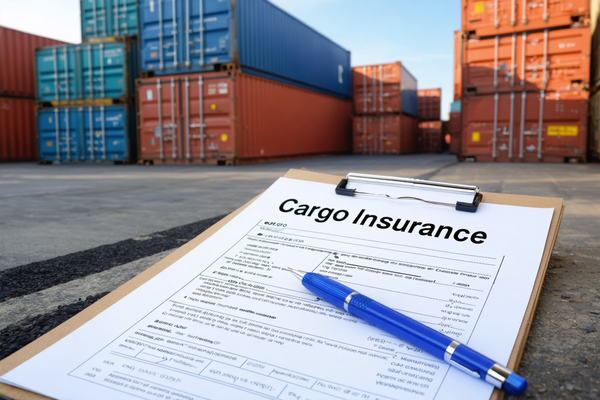
While cargo insurance is not legally required for shipping from China to Germany, it is highly recommended to protect your goods against potential risks, including damage, theft, or loss during transit.
Shipping, especially internationally, involves various handling stages and unpredictable factors such as weather or port delays. Without insurance, you bear the full financial risk for any damages or losses. Investing in cargo insurance provides peace of mind and financial security, particularly for high-value shipments.
Tip: Always verify whether your shipping terms, such as CIF or DDP, already include basic insurance coverage. For comprehensive protection, consider purchasing additional insurance.
How Much Does It Cost for Cargo Insurance?
The cost of cargo insurance depends on several factors, including the value of the goods, type of transport, and insurance coverage level. Here’s a general breakdown:
Insurance Rate Calculation
- The insurance fee is typically calculated as 0.3% to 0.7% of the total cargo value, including shipping costs.
Example Calculation
- If your goods are valued at €50,000 and the insurance rate is 0.5%, the insurance cost would be:
Insurance Cost = €50,000 x 0.5% = €250
- If your goods are valued at €50,000 and the insurance rate is 0.5%, the insurance cost would be:
Additional Costs
- Some insurers may charge a minimum fee or higher rates for specialized goods such as electronics, perishables, or hazardous materials.
Recommendation: Work with your freight forwarder or insurance provider to select the right policy for your shipment. Many freight forwarders, including DFH Logistics, can offer discounted insurance rates due to established relationships with insurers.
How to Reduce Shipping Costs from China to Germany?
Reducing shipping costs from China to Germany is essential for maintaining profitability. Here are practical strategies to lower your shipping expenses:
Choose the Right Shipping Method
- Opt for sea freight (LCL or FCL) or railway freight for cost-effective transport of bulk shipments.
Consolidate Shipments
- Combine goods from multiple suppliers into one shipment to save on per-unit shipping costs.
Negotiate Rates
- Work with freight forwarders to secure competitive rates and take advantage of discounts for frequent shipments.
Optimize Packaging
- Use space-efficient packaging to reduce volumetric weight charges.
Plan Ahead
- Avoid peak shipping seasons and book early to secure lower rates.
How to Verify Quality Before Shipments Leave China to Germany?
Ensuring the quality of goods before they are shipped is vital to avoid costly returns or disputes. Here’s how you can verify product quality:
Pre-shipment Inspection
- Hire a third-party inspection service to check product quality, specifications, and packaging before shipment.
Request Samples
- Ask suppliers for product samples to assess quality before bulk production.
Work with Your Freight Forwarder
- Freight forwarders like DFH Logistics offer quality-check services, ensuring your goods meet requirements before shipping.
Communicate Clearly with Suppliers
- Provide detailed specifications and packaging instructions to minimize errors.
By conducting thorough checks, you can ensure your goods meet expectations and avoid delays or losses.
How to Ship from Different China Suppliers to Germany at the Same Time?
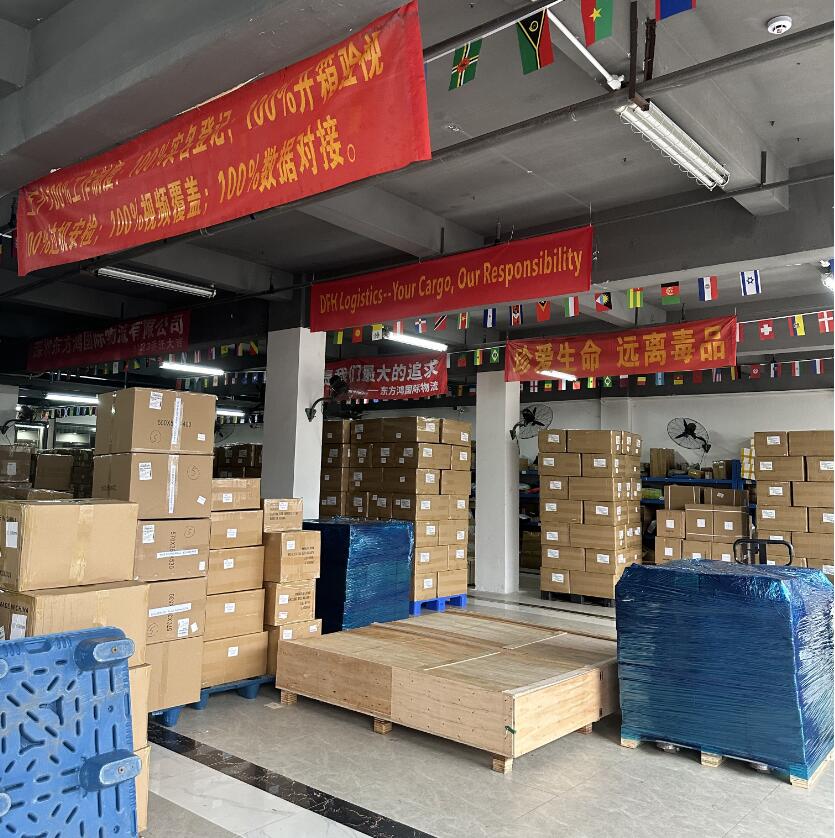
When sourcing products from multiple suppliers in China, finding a freight forwarder with consolidation services is key to streamlining your shipments. DFH Logistics offers a professional consolidation service to help you ship from different suppliers to Germany in one efficient process.
Benefits of Consolidation with DFH Logistics:
- Cost Savings: Combining shipments reduces overall shipping costs by minimizing per-unit expenses and optimizing packaging.
- Time Efficiency: All goods are shipped together, eliminating the need for separate delivery arrangements.
- Simplified Management: DFH Logistics handles the entire process, including pickup, inspection, and repacking, ensuring everything is prepared according to your requirements.
With DFH Logistics, you can save money, reduce complexity, and ensure that all your goods arrive in Germany safely and on time.
Can You Ship from China to Amazon FBA in Germany?

Yes, DFH Logistics specializes in shipping directly to Amazon FBA warehouses in Germany. We handle:
- Pickup and Consolidation: Collect goods from multiple suppliers and prepare them for FBA requirements.
- Labeling and Repacking: Ensure products meet Amazon’s strict packaging and labeling guidelines.
- Customs Clearance: Handle all export and import procedures to avoid delays.
- Final Delivery: Deliver goods to designated FBA warehouses across Germany.
With our expertise, your shipment process becomes hassle-free, ensuring compliance with Amazon standards.
How to Track the Shipment from China to Germany?
Tracking your shipment from China to Germany is simple and transparent. Once your goods are shipped, DFH Logistics will provide you with a unique tracking number. Here’s how you can use it:
Visit the Tracking Website
- Go to the designated tracking website provided by DFH Logistics or the carrier (e.g., DHL, FedEx, or UPS).
Enter the Tracking Number
- Input the tracking number into the search bar to access real-time updates about your shipment.
Monitor the Entire Shipping Journey
- You can view the complete transportation trajectory, including pickup, transit, customs clearance, and final delivery.
This system ensures you stay informed about your shipment’s status at every stage, providing peace of mind and the ability to plan for delivery effectively.
How to Choose a Reliable Freight Forwarder from China to Germany?
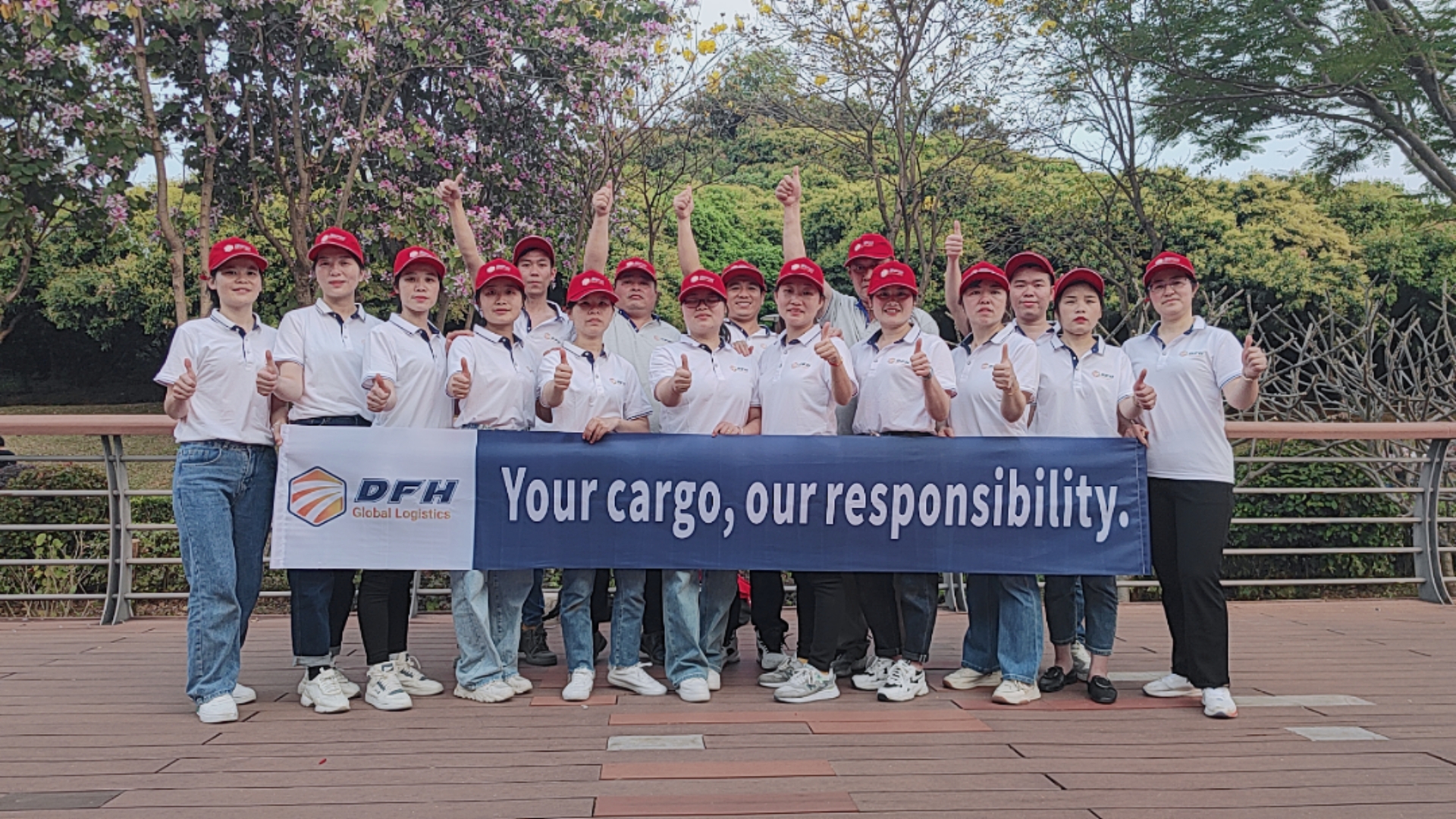
Choosing the right freight forwarder is essential for smooth international shipping from China to Germany. Here are key factors to consider:
Experience and Expertise
- Look for a forwarder with extensive experience handling shipments to Germany and expertise in customs regulations.
Service Range
- Ensure they offer services that meet your needs, such as consolidation, DDP shipping, and door-to-door delivery.
Communication and Transparency
- A reliable forwarder provides regular updates and clear communication throughout the shipping process.
Competitive Pricing
- Compare rates and ensure there are no hidden fees while balancing cost with service quality.
Client Reviews and Reputation
- Check client testimonials and ratings to assess their reliability and professionalism.
By evaluating these factors, you can choose a freight forwarder that ensures cost-effective and hassle-free logistics.
Why Consider DFH Logistics as Your Freight Forwarder from China to Germany?

DFH Logistics is a trusted partner for businesses shipping goods from China to Germany. Here’s why we stand out:
Comprehensive Services
- We handle everything from pickup and consolidation to customs clearance and final delivery, offering tailored solutions like DDP shipping.
Transparent Communication
- Our team provides clear updates and tracking, ensuring you’re informed at every stage of the journey.
Competitive Pricing
- With years of industry experience, we secure cost-effective rates for air, sea, and rail freight.
Custom Solutions
- Whether consolidating goods from multiple suppliers or navigating complex customs processes, we offer flexible and efficient solutions.
Proven Track Record
- With over 20,000 clients served, DFH Logistics is known for reliability and customer satisfaction.
Choosing DFH Logistics means partnering with a team that prioritizes your success and ensures a seamless shipping experience.
Conclusion
Shipping from China to Germany doesn’t have to be complicated. With the right freight forwarder like DFH Logistics, you can enjoy a seamless and cost-effective shipping experience.
If you have any other questions about shipping from China to Germany, feel free to contact us anytime. We’re here to help!

